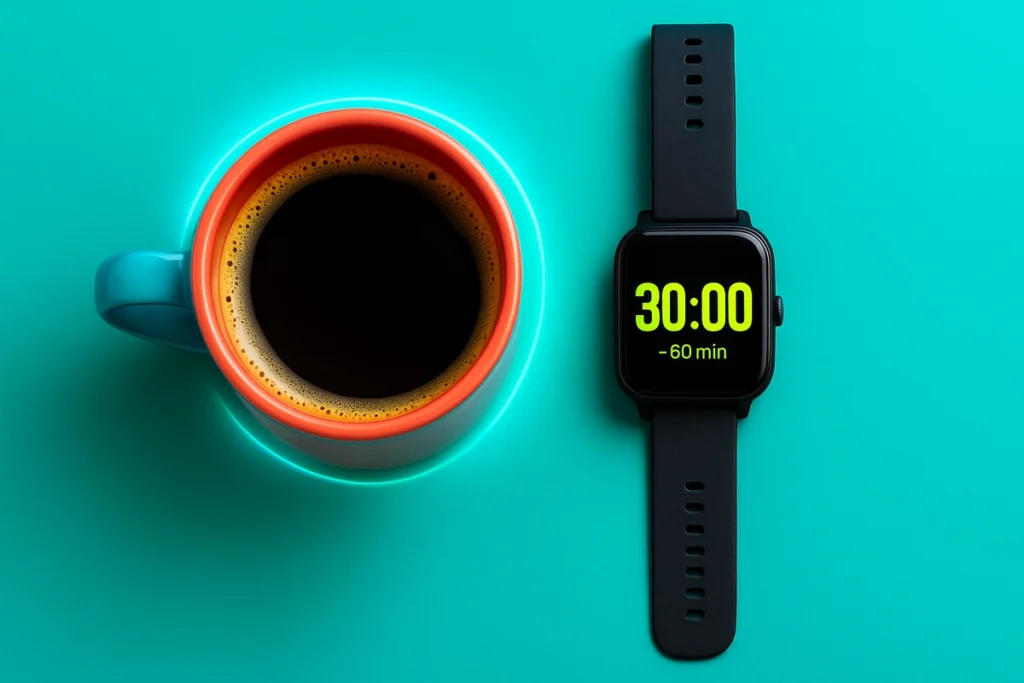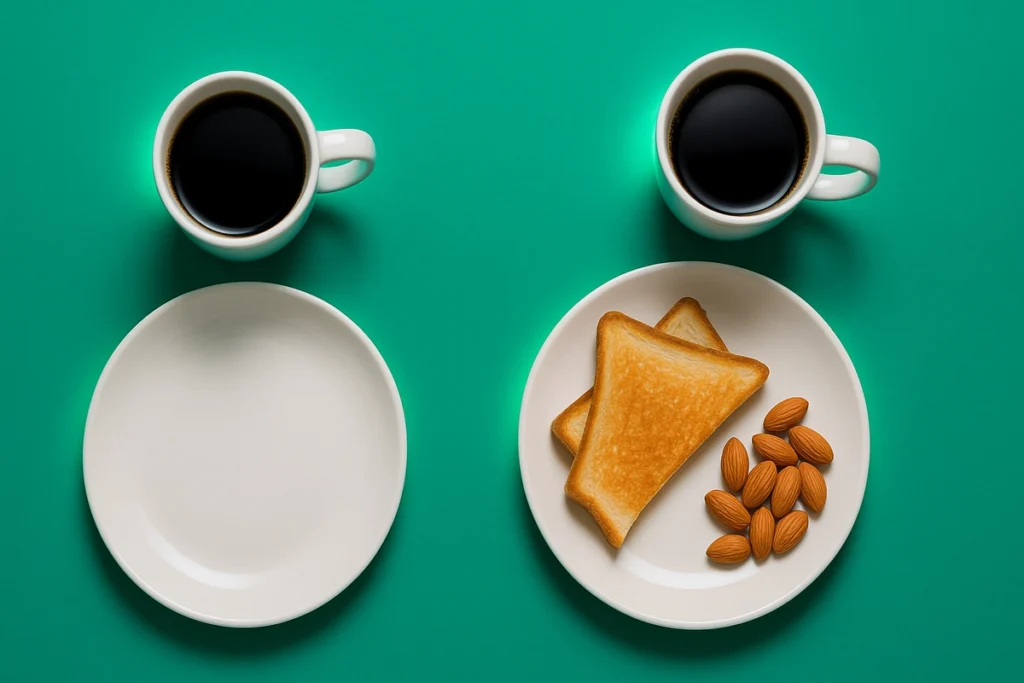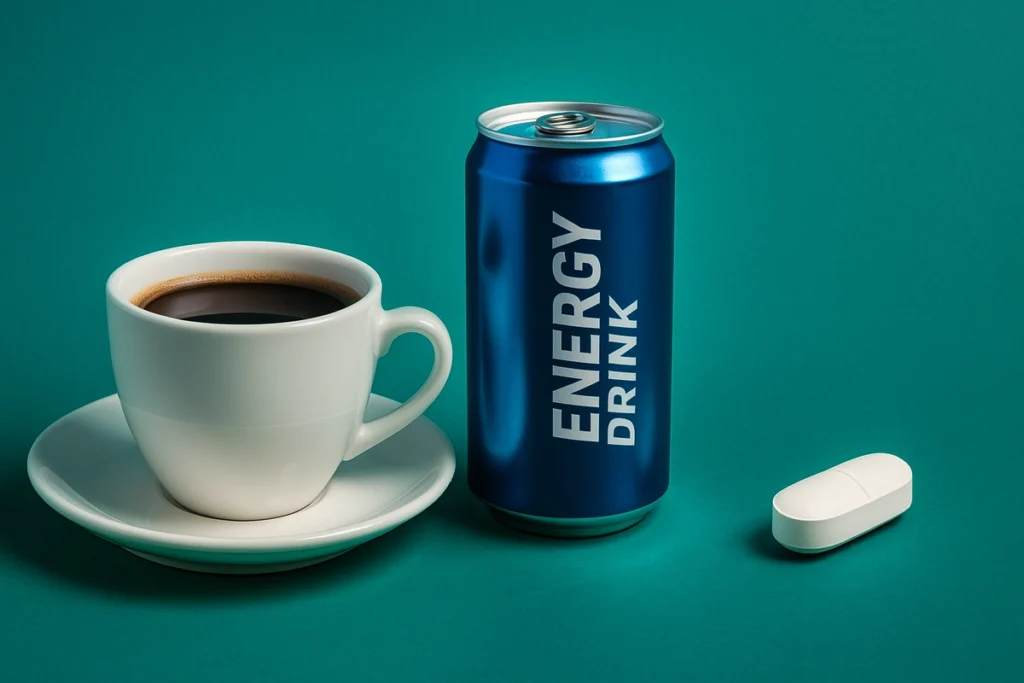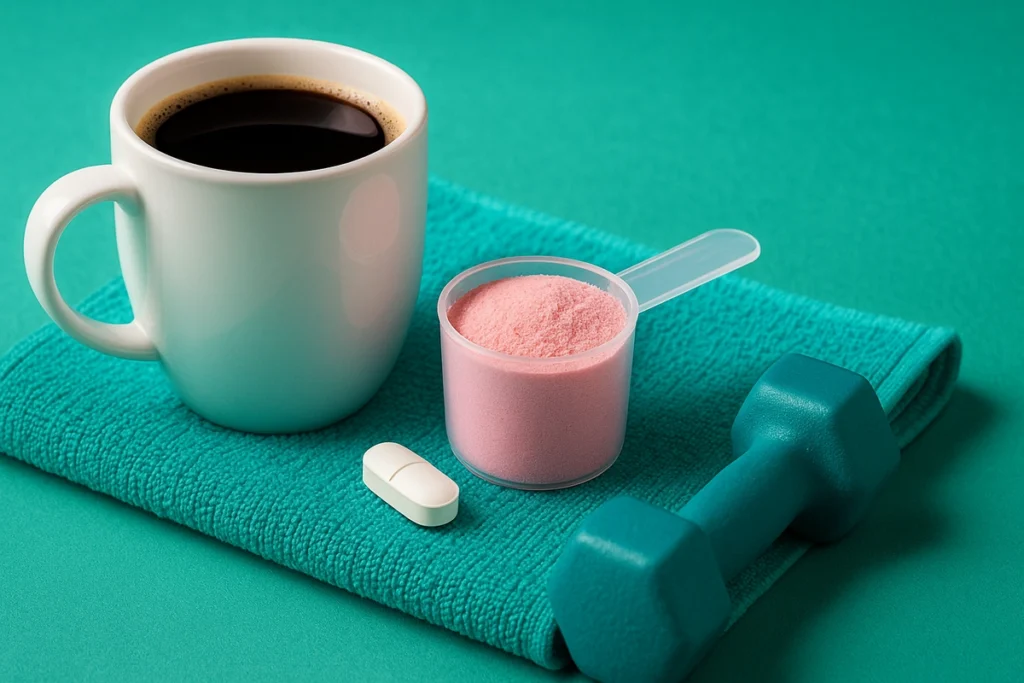Struggling to wake up and crush your early morning workouts? You’re not alone.
Many lifters turn to caffeine to boost energy, focus, and performance—but the timing makes all the difference.
Take it too late, and it kicks in after your workout. Take it too early, and you miss the peak window.
In this article, I’ll break down the best time to take caffeine for early morning training, based on science, personal experience, and real client results.
Let’s optimize your morning performance—one cup at a time.
Table of contents
- When Should You Take Caffeine Before Morning Training?
- Why Caffeine Timing Matters in the Morning
- Fasted vs. Fed: Does It Change the Effect?
- Dosage Guide: How Much Caffeine Is Optimal?
- Best Caffeine Sources for Morning Workouts
- Potential Drawbacks of Early Morning Caffeine
- Final Verdict: The Smartest Way to Use Caffeine Before Early Training
When Should You Take Caffeine Before Morning Training?

If you’re hitting the gym right after waking up, the best time to take caffeine is 30 to 60 minutes before your workout.
That window gives your body enough time to absorb the caffeine and unlock its full benefits—like improved alertness, sharper focus, and better strength output. Personally, I aim for 35–40 minutes. It’s my sweet spot, and I’ve seen it work for clients too.
For more detailed insights on optimal caffeine timing in general, check out this complete guide.
Why Caffeine Timing Matters in the Morning

Early mornings are rough. Your body’s still shaking off sleep, cortisol levels are naturally rising, and your nervous system might not be fully alert.
This is where caffeine shines.
Taking caffeine first thing helps counter that “morning fog” by stimulating the central nervous system and giving your brain a jolt of clarity.
On days I skip it, I feel the drag—especially on heavy deadlift mornings. But with a small black coffee before my warm-up, I’m locked in by the first working set.
If you want to learn how caffeine enhances your brain and focus during early lifts, read this article.
Fasted vs. Fed: Does It Change the Effect?

Caffeine on an empty stomach can hit faster and feel stronger—but it’s not for everyone.
Personally, during cutting phases, I’ve often trained fasted with just coffee, and it helped suppress hunger while boosting focus.
In 2023, while prepping for a summer shoot, I relied on this strategy for morning HIIT.
That said, I’ve learned the hard way: too much caffeine fasted can cause nausea or light-headedness. So now, if I wake up feeling off, I’ll have a few almonds or half a slice of toast with it.
Some of my clients, like Emily, felt better this way too.
Curious about the best practices? Explore more in this caffeine and fasted cardio guide.
Dosage Guide: How Much Caffeine Is Optimal?

The research supports 3–6 mg of caffeine per kg of bodyweight for performance.
But let’s keep it real—not everyone needs the upper end. I typically take around 150–200 mg, which is about one strong cup of black coffee.
It gives me all the focus and energy I need without jitters.
One of my clients, Carlos, used to struggle through his 6:30 AM sessions. I suggested a small cup of coffee before his warm-up.
A week later, he said, “It was like flipping a switch—I was finally awake.”
Everyone’s tolerance is different, so start low and listen to your body.
If you need help resetting your sensitivity, here’s a full guide on how to manage caffeine tolerance.
Best Caffeine Sources for Morning Workouts

Here’s what I’ve tested (and what works best):
- Black Coffee – My go-to. It’s natural, fast, and clean.
- Caffeine Pills – Great for when I’m in a rush or need a precise dose.
- Pre-Workout Drinks – I use them occasionally, but I’m picky because many are overloaded with sweeteners and stimulants.
For beginners, I always recommend starting with coffee.
It’s the easiest way to test your reaction without committing to something heavy.
For a deeper comparison, check out caffeine pills vs coffee for gym performance.
Also, you can find stimulant options that won’t cause a crash in this no-crash caffeine supplement guide.
Looking for more natural options? See natural caffeine sources for pre-workout.
Potential Drawbacks of Early Morning Caffeine

Caffeine’s a tool, but it can backfire if abused.
I’ve had days where too much caffeine led to poor sleep—especially when I took it again later in the afternoon.
That’s why I avoid caffeine after 2 PM now.
Also, watch out for stomach sensitivity. When I trained fully fasted with a high dose, I got light nausea mid-session.
A small snack usually solves this.
Clients with anxiety or sleep issues should also monitor their intake.
For details, read about the side effects of high-dose caffeine.
Final Verdict: The Smartest Way to Use Caffeine Before Early Training

Here’s what I tell every client (and follow myself):
Use caffeine as a performance tool—not a daily crutch.
Take it 30–60 minutes before early morning workouts, stick to moderate doses, and learn how your body responds.
For best results, give your body caffeine-free breaks a couple of days per week to maintain sensitivity.
When timed right, caffeine can elevate your performance, sharpen your focus, and energize your mornings.
Want to stack caffeine with creatine for even more impact? Here’s the science-backed caffeine + creatine combo guide.
Also, don’t overlook recovery—caffeine may even help reduce muscle soreness.



Leave a Reply